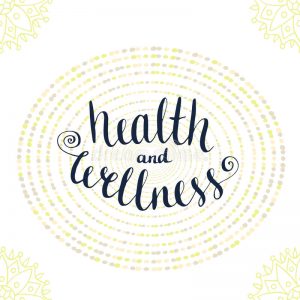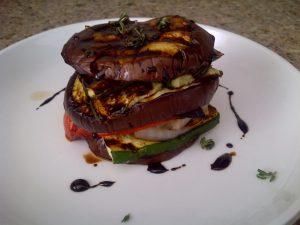


Many families go without meals, especially on holidays. Here is a list of items that you could donate to your church or to your local food bank for Easter so that those less fortunate could enjoy a meal as well.
- Box of cereal
- Peanut Butter
- Stuffing Mix
- Bag or Boxed of Potatoes
- Mac & Cheese
- Canned Fruits
- Canned Tomatoes
- Tuna
- Dessert Mix
- Applesauce
- Canned Vegetables
- Packaged Oatmeal
- Package of Pasta
- Pasta Sauce
- Chicken Noodle Soup
- Tomato Soup
- Box of Crackers
- Bag of Rice
- Sweet Potatoes
Any help would be greatly appreciated by the receiving families,
as well as churches and food banks.

There have been over 57 million COVID-19 vaccinations administered in the United States.
The CDC is recommending that the following groups of people be offered the vaccine first.
- Health care personnel
- Adult residents of long-term care facilities
- Essential persons like first responders and teachers
- People 75 years of age or older
- People ages 65-74
- People ages 16-64 who have underlying medical conditions
- Other essential persons who work in industries such as foodservice and construction
Note: Keep in mind that guidelines may vary by state.
There are presently two vaccines that are authorized for use in America:
- Pfizer-BioNTech COVID-19 vaccine – With an efficacy rate of 95%, this vaccine is suitable for ages 16 years or older. Recipients receive two injections 21 days apart.
- Moderna’s COVID-19 vaccine – With an efficacy rate of 94.1%, this vaccine is suitable for ages 18 years or older. Recipients received two injections 28 days apart.
Both vaccines use messenger RNA technology
Both of the above vaccines use messenger RNA ( mRNA). These vaccines do not use the live virus that causes COVID-19. Contrary to what you may have heard about these vaccines, mRNA does not enter the cells’ nucleus, which means it can’t alter DNA. Cells receive instruction on how to make a harmless protein unique to the virus. Once copies of the protein are made, the genetic material from the vaccine is destroyed. In response to the protein, the body makes T-lymphocytes and B-lymphocytes that fight off the COVID-19 virus if an infection happens.
Here’s some news about mRNA vaccines, according to Dr. Joshua Levitt:
- Adjuvants: Chemical adjuvants are ingredients that are added to traditional vaccines to stimulate a stronger immune response. Because mRNA vaccines work differently than traditional vaccines, they do not require the same adjuvants, so the ingredient list is actually “cleaner” than many traditional vaccines.
- Preservatives: mRNA is an unstable molecule that requires extremely cold temperatures to maintain its integrity. Those cold temperatures reduce the need for extra preservatives which are required in traditional vaccines.
According to The Centers for Disease Control ( CDC), people with the following should not be vaccinated by a mRNA vaccine:
- If you have had a serious allergic reaction or immediate reaction to any vaccine ingredient, you should not get the vaccine. This includes a reaction to polyethylene glycol (PEG) and polysorbate. Although polysorbate is not in either of the vaccines mentioned above, it is closely related to PEG, which is in the vaccines.
- If you have a severe allergic reaction or an immediate allergic reaction after the first dose, you should not get another injection, even if the reaction was not severe. Examples of an immediate reaction include hives, swelling, or wheezing occurring within four hours of vaccination.
Note: If you have had a severe allergic reaction to injectables in the past, you can still get the vaccine, but you need to be monitored for 30 minutes after getting the vaccine.
What if I have an underlying condition?
If you have an underlying medical condition, the CDC states that you can get the vaccine as long as you have not had a reaction to a COVID-19 vaccine or any of its ingredients. There is, however, very little information about the safety of the vaccine in people who have autoimmune disorders or a weakened immune system.
What if I am pregnant or breastfeeding?
Because there is no data on the safety of the COVID-19 vaccines in pregnant or breastfeeding women, it is best to speak with your healthcare provider before considering the vaccine.
Those that have already had COVID-19…
If you have already had COVID-19, a vaccine may help prevent re-infection in the future. It is unknown how long immunity after getting COVID-19 lasts, the CDC is recommending vaccination 90 days after an initial diagnosis.
Possible reactions to COVID-19 vaccines:
The following reactions are possible after the first or second vaccine injection.
- Swelling, pain, or redness at the injection site
- Fatigue
- Fever (remember, this is a sign that your immune system is working)
- Headache
- Muscle pain
- Joint pain
- Chills
- Swollen lymph nodes
- General unwell feeling
- Nausea and vomiting
* An important note for women: It is common for axillary (armpit) lymph nodes to become enlarged on the side where the COVID-19 vaccine was administered. The enlargement can persist for several weeks after the vaccine. Because axillary lymph node enlargement can also occur in breast cancer, this otherwise minor side effect can strike fear in many women after the vaccine. As a result, many experts are now recommending that women avoid unnecessary testing and delay mammograms and for one month after getting a COVID vaccine to allow time for enlarged lymph nodes to subside.
It is important to note that getting the COVID-19 vaccine may cause some side effects similar to symptoms of the virus. If you have been exposed to COVID-19 and you develop symptoms more than three days after being vaccinated – or if your symptoms persist for two or more days – quarantine and get tested.
What about long term side effects?
Both the Pfizer-BioNTech and Moderna COVID-19 vaccines trials started in the summer of 2020. Because of this, it is impossible to know what long-term side effects, if any, may occur. To stay current with all of the safety data surrounding vaccines, you can visit the Vaccine Adverse Event Reporting System. This site provides data available to the public.
Do I need to prepare for a COVID-19 vaccine?
There is a lot of information circling out there about what to do before a COVID-19 vaccination – it is imperative to sort through what is credible and just talk. Are you wondering about how best to prepare for a COVID-19 vaccination? Here is what the experts are saying:
- According to Aaron E. Glatt, MD and hospital epidemiologist and chief of infectious diseases at Mount Sinai South Nassau in Oceanside, NY, there is nothing specific a person needs to do before taking the vaccine apart from reporting any previous serious allergic reactions.
- Blanka Kaplan, MD, is a specialist in adult and pediatric allergy and immunology at Northwell Health in Great Neck, NY. According to Kaplan, if you take allergy medicine, you should not stop taking it before being vaccinated.
- Kaplan also advises against taking any kind of non-steroidal anti-inflammatory drugs such as ibuprofen or aspirin before and 2 hours after vaccination – unless instructed otherwise by your physician. These may cause an allergic reaction in some people.
- Kaplan’s additional advice includes avoiding alcohol 24 hours after vaccination and avoiding strenuous exercise 2 hours before and 2 hours after vaccination. Also, skip the hot shower 2 hours before and 2 hours after vaccination as it can cause allergic reactions in some people.
What you should do to support a healthy immune system?
According to the experts, there are a few things that you can do to support your immune system doing its job.
Stay hydrated- The first one is to stay well-hydrated. Hydration is fundamental to keeping your immune system healthy. It is recommended to drink a minimum of half their body weight in ounces of water. If you are a coffee drinker, drink one cup of water extra for every cup of coffee you drink. Choose purified water and herbal tea.
Eat right- Eating a whole food diet is a great way to stay healthy and keep your immune system in top shape. Skip the sugar-laden drinks, refined vegetable oil snacks, and munch on some carrots and hummus instead. The more colorful your diet, the better – include delicious fruits, vegetables, nuts, seeds, whole grains, and healthy fat.
Sleep well – For your immune system to do what it needs to do, you need to adopt a healthy sleeping routine. Studies show that people who do not get enough sleep are more likely to get sick when exposed to a common cold virus. Additionally, a lack of sleep can also impact how fast you recover if you do get sick. Try to go to bed early and get at least 7-9 hours of quality sleep. Put away the electronics an hour before bed and sleep in a dark and cool room.
Stay active – Regular exercise is vital to overall health and wellbeing and a robust immune system. Exercise helps increase circulation, allowing cells and substances of the immune system to circulate through the body and do their job.
Manage stress – Being in a constant state of stress can take its toll on your mental and physical health and impede proper immune function. Although small bouts of stress may induce immune function, chronic stress does the opposite by increasing inflammation and lowering lymphocytes, which are white blood cells that help keep infection at bay. If you battle with chronic stress, try to adopt some health stress-beating habits like journaling, exercising, deep breathing, yoga, and spending time in nature.
What does the future hold?
Rosemary Scented Veggie Stack


INGREDIENTS
• 4 portabella mushrooms, gills scraped off
• 1 sweet yellow onion, sliced into ¼-inch thick rings
• 1 red, yellow, or orange bell pepper, sliced into quarters lengthwise
• Balsamic vinegar
• 1 sprig fresh rosemary, leaves removed from stem and chopped
• ½ cup reduced fat goat cheese
• 4 whole grain hamburger buns
INSTRUCTIONS
1. Oil the grates of a grill or grill pan. Heat grill on medium-high.
2. Place a small saucepan on the grill and fill with ½ cup balsamic vinegar. Allow
vinegar to come to a boil and reduce until it’s a syrup.
3. Place the mushrooms bottom-side up on the grill. Place the remaining vegetables on the grill. Pour 1 tbs. balsamic vinegar and ¼ tsp. rosemary into each
of the mushrooms.
4. Cook vegetables about 4-5 minutes. Turn over onion and bell pepper and
cook an additional 5 minutes.
Total Time (Cook & Prep): 30 minutes
Servings: 4

